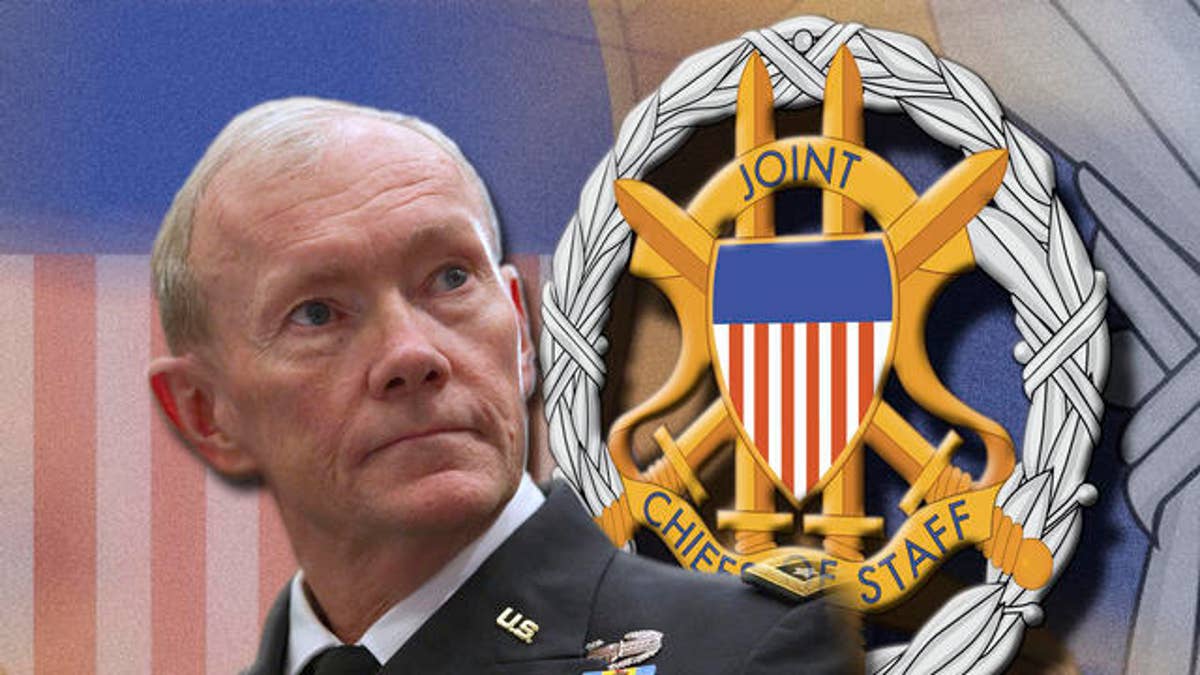
Army Chief of Staff Gen. Martin Dempsey speaks to family members of fallen service members at a Tragedy Assistance Program for Survivors seminar, Friday, May 27, 2011, in Arlington, Va. (AP Photo/Evan Vucci) (AP2011)
In his first trip to Latin America, Joint Chiefs of Staff Martin Dempsey said that the U.S. is working to improve security ties in Latin America because they worry that smuggling networks used to move illegal drugs into the U.S. could be tomorrow's path for a terrorist's bomb.
Dempsey said he is wary of a dangerous network of drug traffickers, weapons smugglers and organized criminal elements in South and Central America. They have developed transit avenues -- by land, sea and air -- that one day could be used to move far more dangerous things, like weapons of mass destruction, across the southern U.S. border, he said in an interview with reporters traveling with him.
"That network can move anything," he said. "It'll go to the highest bidder. So looking to the future, it's certainly in our interest to do what we can to help the nations in this region to break those networks" to prevent it being used by terrorists.
"It's both the narcoterrorism activities that we see destabilizing our southern border (and) it's that network itself that can be used for other purposes -- and probably will be," he added.
Asked whether he sees this network as akin to the al-Qaida network of terrorist cells, money raisers and facilitators, he said, "That is a fair analogy. We learned how to defeat al-Qaida by attacking the network along its entire length. Now in that case we did most, if not all, of the heavy lifting. The question here (in South America) would be, can we take the same paradigm in how to attack a network -- but not do it ourselves?"
Dempsey is not advocating a surge of U.S. military activity in Latin America, although the Obama administration has identified this region as increasingly important to U.S. national security. To underscore that importance, Defense Secretary Leon Panetta is due to visit Colombia, Brazil and Chile next month, and President Barack Obama is due to attend a Summit of the Americas in Colombia in mid-April.
Brazil was the final stop on a three-day tour of South America that on Tuesday took Dempsey to a jungle outpost in northeastern Colombia a couple of miles from the Venezuelan border, where the Colombian military -- with help from U.S. military advisers -- is stepping up its decades-long fight against the Revolutionary Armed Forces of Colombia, the insurgent group known by its Spanish initials, FARC.
Dempsey has used his visits to reaffirm a U.S. commitment to working with the region's militaries. The visit also served to highlight a key tenet of the Obama administration's new defense strategy: partnering with other militaries in regions where the U.S. does not have a substantial military footprint and helping countries like Colombia fight their insurgents rather than intervening with U.S. troops.
Dempsey said arrangements are being made to send Army and perhaps Marine Corps colonels who have commanded combat brigades in Iraq and Afghanistan to Colombia to share what they learned about countering an insurgency. The plan is to have one such colonel spend two weeks with each of the seven specially tailored task forces that the Colombian military is establishing in various parts of the country to counter the FARC. The Colombians see this as a way to help them accelerate their campaign to further degrade the FARC.
Colombia also would like the Pentagon to provide additional aircraft for moving cargo and troops, as well as more surveillance aircraft for tracking the rebels, Dempsey said, adding that he is not yet ready to recommend to Panetta when or whether the U.S. should make those additional contributions.
On Wednesday, Dempsey visited the Brazilian city of Manaus, near the confluence of the Amazon river and the Rio Negro. He toured a steamy outpost where Brazilian troops train in jungle warfare, a skill that U.S. soldiers have lost during a decade of war in Iraq and Afghanistan.
As a former Army chief of staff with years of experience in Iraq, Dempsey said he senses that U.S. military leaders -- not just officers but also the leaders in the enlisted ranks -- need to be challenged by new experiences and forced to adapt to unfamiliar and uncomfortable places.
"The jungle is certainly that," Dempsey told reporters who accompanied him to the jungle warfare school in Manaus, where he got a closed-door briefing by senior Brazilian officers and later had a peaceful encounter with a restrained jaguar that serves as the school's mascot.
In the 48-year history of the Amazon jungle warfare training school, only 25 U.S. soldiers have attended, according to Brig. Gen. Jose Luiz Jaborandy, chief of staff of the Amazon regional military command.
Based on reporting by The Associated Press.
Follow us on twitter.com/foxnewslatino
Like us at facebook.com/foxnewslatino
